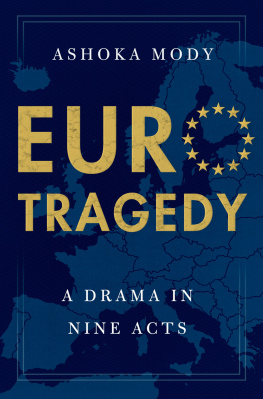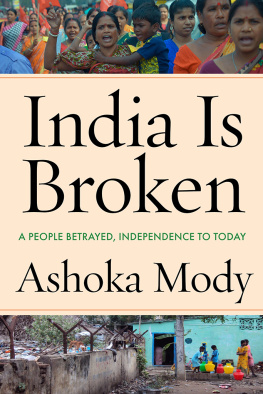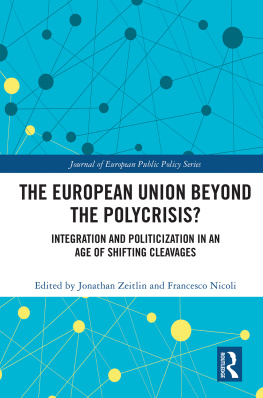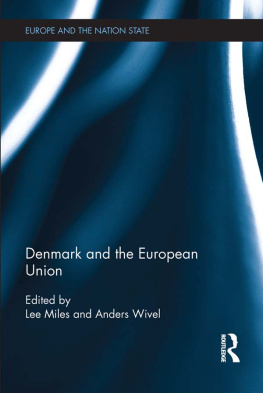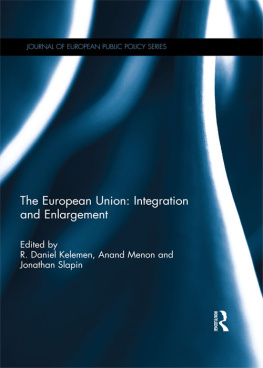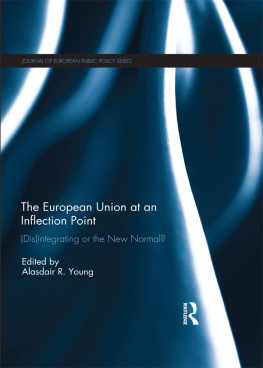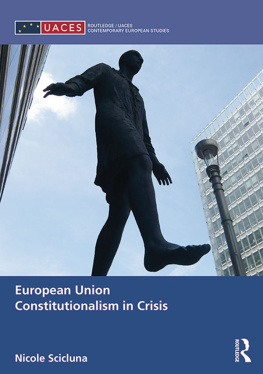EuroTragedy

Oxford University Press is a department of the University of Oxford. It furthers the Universitys objective of excellence in research, scholarship, and education by publishing worldwide. Oxford is a registered trade mark of Oxford University Press in the UK and certain other countries.
Published in the United States of America by Oxford University Press
198 Madison Avenue, New York, NY 10016, United States of America.
Oxford University Press 2018
All rights reserved. No part of this publication may be reproduced, stored in a retrieval system, or transmitted, in any form or by any means, without the prior permission in writing of Oxford University Press, or as expressly permitted by law, by license, or under terms agreed with the appropriate reproduction rights organization. Inquiries concerning reproduction outside the scope of the above should be sent to the Rights Department, Oxford University Press, at the address above.
You must not circulate this work in any other form and you must impose this same condition on any acquirer.
Library of Congress Cataloging-in-Publication Data
Names: Mody, Ashoka, author.
Title: EuroTragedy : a drama in nine acts / Ashoka Mody.
Other titles: Euro Tragedy
Description: New York City : Oxford University Press, 2018.
Identifiers: LCCN 2017046690 | ISBN 9780199351381 (hardback) | ISBN 9780199351398 (updf) | ISBN 9780199351404 (epub)
Subjects: LCSH: EuropeEconomic integrationHistory. | EuropeEconomic conditions1945 | BISAC: BUSINESS & ECONOMICS / International / Economics. | BUSINESS & ECONOMICS / Economics / Macroeconomics.
Classification: LCC HC240 .M694 2018 | DDC 337.1/4209dc23
LC record available at https://lccn.loc.gov/2017046690
To Shalini,
Who never asks for anything in return
CONTENTS
Willy Kiekens, formerly an IMF Executive Director, suggested in a phone conversation soon after I left the IMF that I write a book explaining the euro crisis. He set me off on an amazing journey.
My greatest debt is to George Akerlof. He understood what I wanted to write long before I did. Through many lunches over five years, he gave me an opportunity to talk about my findings and ideas. These ideas crystalized at a particularly long lunch in Georgetown in late 2016, when he prodded me on potential titles for the book and then came up with one himself: EuroTragedy: A Drama in Nine Acts.
My other mentor during these past years was Andr Szsz. My breath was taken away by his little but magnificent book, The Road to European Monetary Union. Following a long phone conversation with him, I visited him twice in Amsterdam. With a twinkle in his eye, he said to me that he would be my archive. Sure enough, over a period of three years, he wrote me beautifully composed emails, sometimes twice a week. His last email to me was on December 19, 2016. In place of his customary cheer, he wrote, This makes it clear that when member states agreed to proceed toward a common currency, there was no consensus on important political implications, notably for national sovereignty. I think it is this fact that should be stressed. Two weeks later, through a common friend I heard, with great sorrow and dismay, that Andr had passed away.
Among other important influences, Liaquat Ahamed read several drafts and pointed me in the direction of writing a story instead of a conventional thematically organized economics book. He even drew me a flow diagram of how the story could evolve. Writing the book as a story has been so much funand it helped me recognize that often the story itself is the story.
In the honor list of those who read the entire manuscript are Madeleine Adams, Paulette Altmaier, Michael Bordo, Kevin Cardiff, James Conran, Barry Eichengreen, Henry Ergas, Edward Hadas, Juha Khknen, Elizabeth Litchfield, Mico Loretan, Thomas Mayer, Peter Smith, and Enzo Rossi. As the end approached, many of them became virtual coauthors in taking me to the finish line. I am grateful to them all. Their knowledge and their generosity was one of the many gifts of writing this book.
To my great delight, my 85-year old mothera former school guidance counselor and someone who only skims the economics section of the Times of Indiavolunteered to read my final draft. By the time she completed reading the manuscript, she had strong views on needed changes; when she said the book was done, I was reassured that I was, in fact, done.
Several colleagues, friends, and family members kindly read chapters of the book. Among them were Suzanne Albers, Lee Buchheit, Ajai Chopra, Geoff Cooper, Michael Carlston, Stefania Fabrizio, Peter Hall, Rahul Jacob, Nigel Lawson, Michael Leigh, Paul Lever, Colleen McHugh, Graham McKee, Matina Meintani, Sophie Meunier, Kevin ORourke, Swaha Pattanaik, Morgan Steelman, Neil Unmack, and Emil Verner. David Wheeler, one of my PhD thesis advisors, played that role again with his matchless wisdom and humor. D. C. Rao, once a distinguished economist at the World Bank and ever since a spiritual teacher, acted as my guardrail. The mathematicians in the family, Krishnan and Andra, read parts of the manuscript with their customary attention to precision and logic, helping me think straight and thus greatly improving the exposition.
The Woodrow Wilson School at Princeton University was the perfect place to work on a book that aspired to blend economics, politics, and history. The school has it all: a vibrant academic community, bright and curious students, and extraordinary resources. Among colleagues, I was fortunate to learn from Yacine Ait-Sahalia, Markus Brunnermeier, Harold James, Robert Keohane, Andrew Moravcsik, and Sophie Meunier. Andy and Sophie also organized regular seminars on European economics and politics, to which they brought distinguished scholars and policymakers. Perhaps the most unexpected ideas for the book came from lively classes where my students challenged and probed. Teaching truly is an exciting way to learn. The librarians with their unflagging patience searched for the exact data and the perfect story. Elana Broch started me off, and Ashley Faulknerfor whom being a librarian is a callingfound me virtually anything I could dream of. And Bobray Bordelon surely knows more about economic databases than any other human being.
I am grateful also to Jean Pisani-Ferry and, especially, to Guntram Wolff and Matt Dann for welcoming me over many summers to Bruegel and giving me access to their valuable platform to test some of my ideas. Jan Krahnen at Goethe University and the Centre for Financial Studies in Frankfurt also generously hosted me for a summer. Through these visits, I was able to meet and correspond with Otmar Issing, Horst Khler, Romano Prodi, and Jean-Claude Trichet, to all of whom I am most grateful for their valuable time. Thomas Moser of the Swiss National Bank graciously gave me the opportunity to spend several weeks there.
On yet another roll of honor are my research assistants and students. With extraordinary diligence and pride in her work, Uuriintuya Batsaikhan did several iterations leading to the final production of the charts in the book. Several others helped me with the data analysis, proof reading, and editing: Nidhi Banavar, Rachel Lurie, Graham McKee, Giulio Mazzolini, Arvind Natarajan, Brandon Tan, Fabian Trottner, Aron Villarreal, Nancy Wu, and especially Junho Choi. Anton Pluschke was with me from the very start; with Daniela Gandorfer, at first, he translated German texts and gave comments on various aspects of the book. Hartley Miller and Andrew Atkins were my French consultants; and Maria Rusak worked on Italian translations. Quentin Becheau, Nick Ligthart, and Daniel Kang were students who gave me many specific data and written inputs; they also critically read large parts of the manuscript with the diligence and candor that makes students so special. Christine stlund helped with many aspects of the book; perhaps most important, she pitilessly reminded me of opposing views and perspectives.

